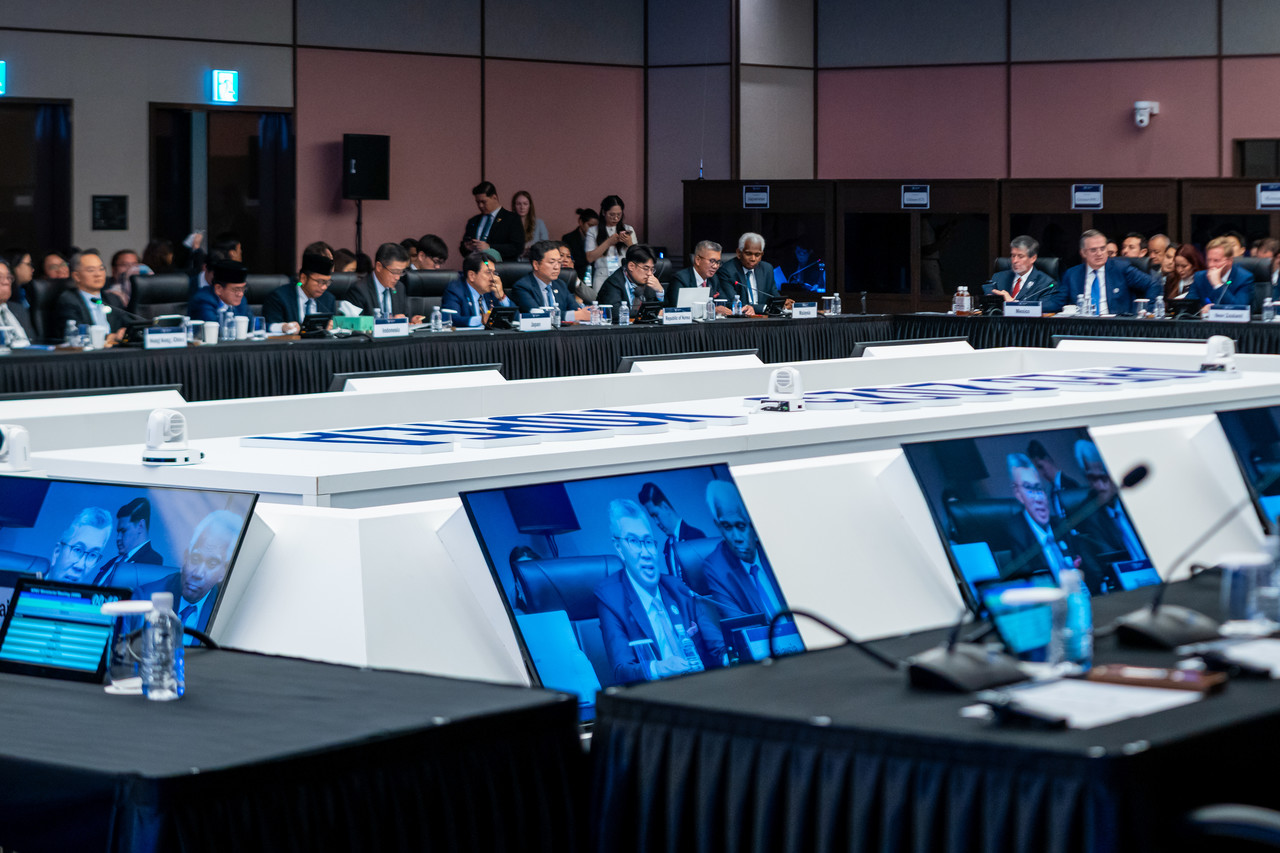Malaysia Calls For Modernisation Of Global Trade Rules To Harness Digitalisation, Ai For Inclusive Growth

GYEONGJU (South Korea), Oct 30 (Bernama) -- Malaysia has called on Asia-Pacific Economic Cooperation (APEC) economies to modernise global trade rules in efforts to harness digitalisation and artificial intelligence (AI) for inclusive growth.
Speaking at the APEC Ministerial Meeting (AMM) here, Malaysian Minister of Investment, Trade and Industry Tengku Zafrul Aziz urged APEC member economies to seize the momentum of digital transformation and AI to ensure inclusive and sustainable growth across the region.
He emphasised that digitalisation has become the backbone of today’s trading system, from paperless customs clearance and electronic certificates of origin to fully digital single window systems. Technology has reshaped cross-border trade and enhanced economic connectivity among economies, he noted.
“Digitalisation must not only make trade faster and smarter, but it must make it fairer and more inclusive. When technology and trust converge, economies don’t just grow - they thrive," he said during Malaysia's intervention at the meeting.
Also present at the meeting was Malaysian Minister of Foreign Affairs Mohamad Hasan.
Citing APEC’s assessments, Tengku Zafrul highlighted that digital trade facilitation has reduced transaction costs by up to 15 per cent, shortened processing times from days to minutes, and empowered micro, small and medium enterprises (MSMEs), women and youth to compete globally. He noted that intra-regional digital trade now contributed an estimated US$2.1 trillion (US$1 = RM4.20) to APEC economies.
Apart from that, Tengku Zafrul reaffirmed Malaysia’s commitment to the APEC Internet and Digital Economy Roadmap (AIDER), which strengthens cooperation in data governance, cybersecurity and digital capacity-building, ensuring that technological progress is anchored in trust, inclusion and interoperability.
He also called for a modernised World Trade Organization (WTO) Trade Facilitation Agreement (TFA) to reflect today’s digital realities.
The current TFA, which concluded nearly a decade ago, no longer fully addresses the complexities of modern trade driven by digital documentation, e-invoicing and cross-border data flows.
“Global trade today relies on systems and data that didn’t exist when the TFA was written,” he noted. “Modernising trade facilitation is not about rewriting rules - it’s about rewiring efficiency. If we fail to adapt, our frameworks risk becoming relics."
The minister also drew attention to critical minerals and AI as emerging gamechangers in global supply chains, urging the WTO and APEC to cooperate in establishing interoperable standards that promote transparency, sustainability and resilience.
Reaffirming APEC’s role as an incubator of ideas, Tengku Zafrul also highlighted that pilot initiatives on paperless trade and digital facilitation have already demonstrated tangible results - reducing costs, improving compliance and empowering MSMEs across the region.
He also reiterated the call for collective action to restore the WTO’s global relevance and credibility, ensuring that the international trading system remains resilient, inclusive and future-ready in the age of digital transformation.
-- BERNAMA





